WordPress Vs Blogger – Which is right for blogging in 2025
In the ever-evolving digital landscape of 2025, choosing the right blogging platform has become more crucial than ever. With countless content creators competing for attention online, your platform choice can make or break your blogging success. WordPress and Blogger continue to stand as two dominant options, each with distinct advantages tailored to different user needs. But as we navigate through this year’s technological advancements, the gap between these platforms has shifted in surprising ways. Are you still using the platform that best serves your current goals?
The decision between WordPress and Blogger goes beyond simple preference—it’s about aligning with your specific blogging ambitions. WordPress, with its dual offerings (.com hosted service and .org self-hosted solution), provides extensive customization through thousands of themes and plugins, while the Gutenberg block editor has revolutionized content creation. Meanwhile, Blogger offers Google’s reliability with a straightforward interface that resembles traditional word processors, making it appealing for beginners seeking simplicity. But with hosting costs, design flexibility, and integration capabilities evolving dramatically in 2025, yesterday’s perfect platform might not be today’s ideal choice.
In this comprehensive guide, we’ll dive deep into comparing WordPress and Blogger across crucial factors including user experience, customization capabilities, flexibility, third-party integrations, costs, and professional branding potential. Whether you’re a seasoned content creator looking to optimize your workflow or a newcomer ready to make your mark online, this analysis will help you make an informed decision that powers your blogging journey through 2025 and beyond.
Understanding WordPress and Blogger in 2025
WordPress: Two versions explained (.com vs .org)
In 2025, WordPress continues to offer two distinct versions that cater to different user needs. WordPress.com is a hosted service where users can quickly set up a blog without worrying about technical aspects. Meanwhile, WordPress.org is a self-hosted open-source solution that provides maximum flexibility and control. This dual approach allows WordPress to serve various website types, from e-commerce platforms to personal blogs.
The self-hosted WordPress.org version requires users to purchase hosting services, typically costing under $10 monthly, making it an investment for serious bloggers and businesses. While free at its core, the hosting requirement distinguishes it from completely free platforms. This version excels with its extensive customization options through themes and plugins, offering users unparalleled control over their site’s appearance and functionality.
Blogger: Google’s free blogging platform
Blogger remains Google’s straightforward, completely free blogging platform in 2025. As part of the Google ecosystem, Blogger requires no separate hosting fees and provides unlimited storage, making it particularly attractive to beginners and casual bloggers. Its interface resembles traditional word processors, allowing users to create and publish content quickly without technical expertise.
However, Blogger is primarily designed for blogging and lacks the comprehensive content management capabilities found in WordPress. Its integration is limited to Google services like Google Analytics and AdSense, which may restrict users seeking broader functionalities outside the Google ecosystem.
Core differences in platform architecture
The fundamental architectural differences between these platforms significantly impact their capabilities. WordPress functions as a complete content management system (CMS) with the Gutenberg block editor enhancing the writing experience by allowing users to manipulate individual content blocks easily. This promotes a modern and dynamic content creation process suitable for various content types.
Blogger’s architecture is more rigid and streamlined, focusing exclusively on blogging functionality. Its uniform design makes Blogger-hosted sites easily recognizable, which may limit its appeal for brand collaborations and professional use. While Blogger offers simplicity, WordPress provides scalability, allowing sites to grow from simple blogs to complex websites.
From a customization perspective, WordPress offers extensive control through its vast repository of free and premium themes and plugins, custom CSS implementation, and a built-in Theme Customizer. Blogger’s customization options remain minimal, with only a few pre-set themes and limited layout adjustments.
Now that we have covered the fundamental differences between WordPress and Blogger’s platform architectures, let’s explore how these differences impact the user experience and content creation process on both platforms in 2025.
User Experience and Content Creation
Now that we’ve explored the fundamentals of WordPress and Blogger in 2025, let’s examine how these platforms handle the actual content creation process and the overall user experience they provide.
WordPress Gutenberg Editor’s Block-Based Approach
WordPress’s Gutenberg editor revolutionized content creation with its intuitive block-based approach. This modern editor allows users to build content by adding individual blocks for paragraphs, images, galleries, tables, and much more. The drag-and-drop interface makes it significantly easier to create visually rich content without needing extensive coding knowledge. Regardless of the platform, running your drafts through a grammar checker helps ensure clarity, consistency, and professionalism before publishing.
What makes Gutenberg particularly powerful in 2025 is how it enables users to:
- Arrange and rearrange content blocks with simple drag-and-drop actions
- Preview changes in real-time
- Create reusable block templates for consistent formatting
- Access advanced layout options previously requiring custom code
While some familiarity with HTML can enhance the WordPress experience, the Gutenberg editor has dramatically reduced the technical barrier for creating professional-looking content.
Blogger’s Traditional Word Processor Interface
In contrast to WordPress’s block editor, Blogger maintains its traditional word processor-like interface. This straightforward WYSIWYG (What You See Is What You Get) editor resembles familiar tools like Google Docs, making it immediately accessible to new users.
Blogger’s interface offers:
- Simple formatting options
- Basic image insertion
- Limited layout controls
- Minimal learning required to start publishing
The simplicity of Blogger’s editing experience aligns with its overall positioning as a straightforward platform for casual bloggers. However, this simplicity comes with limitations in terms of advanced formatting and content presentation options.
Learning Curve and Ease of Use for Beginners
When comparing the learning curves of both platforms, Blogger clearly wins for absolute beginners. Its Google-owned interface requires minimal technical knowledge to set up and start publishing. Users can create a blog in minutes and begin posting content immediately with little to no training.
WordPress, while more powerful, does present a moderate learning curve. New users need to:
- Understand the hosting and domain setup process
- Familiarize themselves with the WordPress dashboard
- Learn the basics of block editing
- Navigate the extensive options for customization
However, WordPress’s popularity has created an abundance of tutorial resources, making the learning process much smoother than in previous years. Most beginners can become comfortable with WordPress basics within a few days of consistent use.
For those prioritizing absolute simplicity, Blogger remains the more straightforward option. Yet for users willing to invest a small amount of time in learning, WordPress offers substantially more powerful content creation capabilities that can grow with their needs.
With these content creation experiences in mind, let’s now explore how each platform handles customization capabilities, which is crucial for creating a unique and branded blog presence.
Customization Capabilities
Now that we’ve explored how WordPress and Blogger handle content creation and user experience, let’s examine their customization options—a critical factor for bloggers seeking to create distinctive online presences in 2025.
WordPress Themes and Plugins Ecosystem
WordPress dominates the web with over 34.5% of all websites globally using this platform. A major reason for this popularity is its extensive customization options through themes and plugins. In 2025, WordPress continues to offer an impressive array of themes catering to every blogging niche imaginable.
The WordPress ecosystem features both free and premium themes with varying levels of customization:
- Elementor: Perfect for non-coders with its intuitive drag-and-drop page builder
- GeneratePress: Lightweight and SEO-friendly, ideal for performance-focused bloggers
- OptimizePress: Robust landing page capabilities for conversion-oriented blogs
- Astra Pro: Known for simplicity and speed, making it perfect for beginners
- Portotheme: Typography-focused theme enhancing readability
- Divi: Feature-rich with extensive design options
- Total: Versatile theme accommodating various blogging styles
Most premium themes offer free versions with limited features, allowing bloggers to test before investing in advanced customization options.
Blogger’s Limited Theme Options
In contrast to WordPress’s vast theme marketplace, Blogger offers significantly fewer customization options in 2025. While Blogger provides some basic themes, they lack the depth and variety available in the WordPress ecosystem.
Blogger’s themes tend to be more rigid in structure and design, offering limited control over layout elements and visual components. This restriction can be particularly challenging for bloggers seeking to create a unique brand identity or those requiring specific functionalities for their content presentation.
Control Over Design Elements and Site Appearance
WordPress excels in providing granular control over design elements:
- Mobile responsiveness: All recommended WordPress themes in 2025 offer mobile-first designs
- Typography options: Themes like Challenger focus specifically on readable typography
- Layout flexibility: Premium themes allow extensive layout customization without coding
- Color schemes and branding: WordPress themes provide comprehensive color customization options
- Header and footer customization: Complete control over these crucial site elements
WordPress themes combined with page builders like Elementor enable bloggers to create unique designs that align perfectly with their brand vision. Additionally, WordPress’s customization extends beyond aesthetics—themes like YITH WonderTheme seamlessly integrate with WooCommerce for bloggers looking to monetize through e-commerce.
Blogger’s customization capabilities, while improved from previous years, still fall short in providing the depth of control over design elements that WordPress offers.
With these customization capabilities in mind, next we’ll explore how WordPress and Blogger compare in terms of flexibility and functionality—crucial factors for bloggers seeking to expand their platforms beyond basic content publishing.
Flexibility and Functionality
Now that we’ve explored the customization capabilities of both platforms, let’s examine how WordPress and Blogger differ in terms of flexibility and overall functionality in 2025.
WordPress as a complete content management system
WordPress has established itself as far more than just a blogging platform – it’s a comprehensive content management system powering approximately 43% of all websites and an impressive 97% of blogs online. This dominance stems from its robust architecture that allows users to build virtually any type of website. As an open-source software, WordPress provides unparalleled flexibility through its extensive ecosystem of themes and plugins.
The platform’s functionality extends well beyond basic blogging capabilities. Users gain access to:
- Complete control over site structure and navigation
- Advanced user management and permission settings
- Comprehensive media library management
- Extensive content organization options (categories, tags, custom taxonomies)
- Ability to create custom post types for specialized content
While WordPress requires a slightly steeper learning curve than simpler platforms, its scalability makes it suitable for everything from personal blogs to enterprise-level websites. The platform’s drag-and-drop interface has significantly improved over the years, making it more accessible while maintaining its powerful backend capabilities.
Blogger’s focus on simple blogging
In contrast to WordPress’s expansive functionality, Blogger maintains its original focus on straightforward blogging. The platform, owned by Google, emphasizes ease of use and quick setup for beginners. Users can create a basic blog within minutes, benefiting from:
- Simplified dashboard and posting interface
- No technical knowledge required to get started
- No hosting concerns (Google handles all server management)
- Unlimited storage since 2018
- Seamless integration with other Google services
However, Blogger’s simplicity comes with significant functional limitations. The platform lacks advanced content management features, making it difficult to organize and present content beyond chronological blog posts. Without HTML knowledge, users are restricted to basic functionalities, which can be constraining for blogs that need to grow beyond simple text and image posts.
E-commerce and website types supported by each platform
The contrast between these platforms becomes most apparent when considering the variety of website types each can support:
WordPress offers exceptional versatility:
- Full-featured e-commerce stores through plugins like WooCommerce
- Membership sites with gated content
- Online courses and learning management systems
- Forums and community platforms
- Portfolio sites
- Business websites with multiple departments and functions
- News and magazine-style publications
Blogger primarily supports:
- Personal blogs
- Simple informational sites
- Basic portfolio displays
- Elementary business blogs
For monetization, WordPress provides multiple pathways including sophisticated e-commerce capabilities, subscription models, and diverse advertising options. Blogger’s monetization options are significantly more limited, primarily restricted to basic Google AdSense integration and affiliate marketing links.
With this understanding of flexibility and functionality differences, we’ll next explore how each platform handles integration with third-party services – another crucial factor in determining which platform might better serve your specific blogging needs in 2025.
Integration with Third-Party Services
Now that we’ve examined the flexibility and functionality aspects of both platforms, let’s explore how WordPress and Blogger integrate with external services and tools – a crucial factor for bloggers looking to expand their capabilities in 2025.
WordPress’s extensive integration capabilities
WordPress truly shines when it comes to connecting with third-party services. The platform offers robust API integration possibilities that significantly enhance website functionality. Through WordPress API integrations, bloggers can:
- Connect their sites to external applications for various operations
- Fetch data from external sources to enrich content
- Improve website appearance and functionality through REST APIs
- Create headless websites that present content across multiple channels without quality loss
What makes WordPress particularly powerful is the availability of tools like the WPGetAPI plugin, which allows users to connect their WordPress sites to REST APIs without coding knowledge. This plugin supports both GET and POST data execution and offers features such as:
- Automated content display from external sources
- Data format conversion between systems
- Compatibility with various authentication mechanisms
- Simplified testing of API connections
For bloggers with more specific needs, WordPress supports custom code integration with detailed processes for creating child themes or custom plugins, making HTTP requests, handling authentication, and parsing data for display.
Blogger’s reliance on Google ecosystem
In contrast to WordPress’s open ecosystem, Blogger primarily integrates within Google’s own family of products. While this creates a more limited third-party integration landscape, it does offer seamless connections with:
- Google Analytics for traffic analysis
- Google AdSense for monetization
- Google Search Console for SEO performance
- Other Google services that complement blogging activities
Blogger’s integration capabilities are more constrained, with fewer options for connecting to external APIs or services outside the Google ecosystem. This creates a walled garden that’s easy to use but potentially limiting for bloggers with diverse integration needs.
Marketing and analytics tools available
When it comes to marketing and analytics integration, both platforms offer different approaches:
WordPress provides extensive options for connecting with marketing and analytics tools:
- Supports integration with virtually any marketing service that offers an API
- Allows implementation of caching to optimize performance
- Enables security practices for API keys and error handling
- Provides options for both plugin-based and custom code integrations
Blogger offers:
- Streamlined integration with Google Analytics and other Google marketing tools
- Fewer options for non-Google marketing and analytics services
- Simpler setup processes but less customization potential
For bloggers focused on robust marketing strategies, WordPress’s wider integration possibilities make it possible to create more sophisticated marketing systems. The ability to connect with specialized tools for email marketing, social media management, and customer relationship management gives WordPress users a significant advantage.
As we examine these integration capabilities, it’s clear that your choice between WordPress and Blogger will significantly impact how you can leverage third-party tools. With these integration considerations in mind, let’s now explore the cost factors that might influence your decision in 2025.
Cost Considerations in 2025
Now that we’ve explored how WordPress and Blogger integrate with third-party services, let’s examine another crucial factor in your platform decision: the financial investment required for each option in 2025.
WordPress Hosting Requirements and Expenses
While WordPress.org itself is a free platform, it comes with necessary expenses that bloggers must consider. The primary cost is hosting, which typically runs under $10 per month with most service providers. Additionally, you’ll need to purchase a domain name for your blog, adding to the initial investment. These costs make WordPress more suitable for businesses and professional bloggers who are willing to invest in their online presence.
The financial commitment doesn’t end with hosting and domain registration. Premium themes, essential plugins, and advanced customization options may require additional investments. However, these expenses should be viewed in context with the platform’s superior functionality, extensive customization capabilities, and professional-grade tools.
Blogger’s Free Model with Unlimited Storage
In contrast, Blogger offers a genuinely cost-free alternative that requires no hosting fees. Since 2018, Google’s platform has provided unlimited storage for all users, making it an attractive option for budget-conscious bloggers. Setting up a Blogger site requires only a Google account, with no additional expenses required to start publishing content immediately.
This zero-cost model comes with significant limitations, however. The platform’s restricted customization options, lack of plugins, and capped number of pages mean you’re trading financial savings for reduced functionality and growth potential. While perfect for hobby bloggers or personal use, these limitations can become problematic as your blog grows.
Long-term Value and Return on Investment
When evaluating cost considerations, it’s essential to look beyond initial expenses toward long-term value. WordPress requires a financial investment upfront but offers substantially greater scalability and monetization capabilities. The platform’s robust SEO tools, e-commerce functionality through WooCommerce, and unlimited page creation provide significant advantages for serious bloggers looking to generate income or build a business.
Blogger, while free, lacks the advanced features needed for professional blogging or e-commerce. Its basic SEO capabilities and limited customization options may restrict your ability to grow traffic and monetize effectively. For casual bloggers, these limitations might be acceptable, but those with professional aspirations should carefully consider whether the free model offers sufficient return on time invested.
As we transition from discussing costs to examining professional appeal and branding options, it’s worth noting that your platform choice significantly impacts how your blog is perceived by potential collaborators and readers.
Professional Appeal and Branding
Now that we’ve examined the cost considerations of both platforms in 2025, it’s important to understand how WordPress and Blogger impact your professional image and branding potential, which directly influences your blog’s success and monetization opportunities.
WordPress’s professional appearance and customizability
WordPress stands out significantly in terms of professional appeal, powering approximately 43% of all websites and 97% of blogs worldwide. This dominance in the market speaks volumes about its professional credibility. The platform offers thousands of customizable themes that allow bloggers and businesses to create unique, branded experiences that align perfectly with their vision.
The extensive customization capabilities through WordPress’s vast repository of plugins and themes enable users to craft a professional-looking website without requiring advanced technical skills. This level of control extends to every aspect of your site’s appearance, from typography and color schemes to layout and functionality.
For businesses and serious bloggers looking to establish a strong online presence, WordPress provides the tools necessary to create a cohesive brand identity across all pages. The platform’s flexibility allows for the integration of custom about us pages and contact forms that maintain brand consistency and professionalism.
Blogger’s recognizable templates and limitations
In contrast, Blogger offers a more limited range of templates that, while recognizable, can appear dated and less professional compared to WordPress options. The platform’s design capabilities are restricted, potentially hindering the visual appeal necessary for establishing a strong brand presence.
Without knowledge of HTML, Blogger users face significant limitations in customizing their sites beyond the basic templates provided. This constraint can make Blogger blogs appear generic and less distinctive, potentially undermining professional credibility.
While Blogger is integrated with the Google ecosystem, which provides some level of professional recognition, its templates often lack the modern, responsive designs that today’s audiences expect from professional websites and blogs.
Impact on brand collaborations and monetization
The platform you choose significantly impacts your ability to attract brand partnerships and monetize your content. WordPress’s professional appearance and extensive customization options make it more attractive to potential brand collaborators who want to associate with polished, professional-looking sites.
WordPress supports diverse monetization strategies beyond just advertising, including e-commerce integration through plugins like WooCommerce, membership sites, and premium content areas. This versatility allows bloggers to create multiple revenue streams while maintaining a professional brand image.
Blogger, on the other hand, offers more limited monetization options, primarily through Google AdSense. This restriction can impact a blogger’s ability to develop lucrative brand partnerships or implement sophisticated monetization strategies, potentially limiting income potential.
Additionally, ownership considerations affect brand perception and collaborations. With WordPress, users maintain full ownership over their sites and data, providing assurance to brands that partnerships won’t be disrupted by platform changes. Blogger content is controlled by Google, which can affect how brands view the longevity and stability of potential collaborations.
With professional branding considerations in mind, next we’ll explore how to make the right choice between WordPress and Blogger based on your specific needs and goals as a blogger in 2025.
Making the Right Choice for Your Needs
Now that we’ve explored the professional appeal and branding aspects of both platforms, it’s time to make a practical decision based on your specific needs. Both WordPress and Blogger have their place in the 2025 blogging landscape, but the right choice depends entirely on your goals, technical proficiency, and future plans.
Best scenarios for choosing WordPress
WordPress stands as the optimal choice for:
- Serious bloggers and businesses looking to establish a robust online presence
- Content creators seeking extensive customization through thousands of themes and plugins
- Entrepreneurs planning to monetize their blog through diverse revenue streams
- Professionals requiring complete ownership of their content and data
- Users who value flexibility and need advanced functionalities for their site
WordPress’s open-source nature means you maintain full control over your site while benefiting from its vast ecosystem. Though it involves initial hosting costs (typically under $10 monthly), the platform offers substantially greater potential for revenue generation and brand development. The extensive community support and ongoing development ensure you’ll have resources available whenever needed.
When Blogger makes more sense
Blogger remains a viable option for:
- Beginner bloggers seeking a straightforward, no-cost entry into blogging
- Casual content creators who prefer simplicity over advanced features
- Users with minimal technical knowledge who don’t wish to manage hosting
- Bloggers with modest goals who don’t require extensive customization
- Those who value Google’s robust infrastructure for security and reliability
With Blogger, you can quickly launch a blog without any hosting fees or technical setup. The platform offers unlimited storage since 2018 and benefits from Google’s security infrastructure, eliminating concerns about server management and backups. For personal blogging without commercial aspirations, Blogger provides a hassle-free solution.
Scalability considerations for future growth
When contemplating long-term viability:
- WordPress offers superior scalability for growing your audience and expanding functionality
- Data portability with WordPress allows seamless migration as your needs evolve
- Blogger presents limitations in advanced marketing tools and customization that may become restrictive
- Professional perception may impact future collaborations, with WordPress sites generally perceived as more professional
- Long-term platform viability favors WordPress due to its community-driven development compared to Blogger’s dependence on Google’s decisions
WordPress’s extensive plugin ecosystem enables your site to grow alongside your ambitions, while Blogger’s restrictions may eventually necessitate a platform change—often at the cost of lost content and SEO rankings. For those with aspirations beyond casual blogging, WordPress provides a foundation that can scale from a simple blog to a complex website without changing platforms.
Final Verdict – WordPress Vs Blogger
Making the Right Choice for Your Blogging Journey
After comparing WordPress and Blogger across multiple dimensions in 2025, the choice between these platforms ultimately depends on your specific needs and goals. WordPress, with its two versions (.com and .org), offers unparalleled flexibility, extensive customization options through themes and plugins, and seamless integration with third-party services. Its Gutenberg block editor enhances content creation, making it ideal for businesses, professional bloggers, and anyone seeking a comprehensive content management system. While WordPress requires hosting services (typically under $10 monthly), the investment provides greater scalability and professional appeal.
Blogger, on the other hand, remains a practical choice for beginners and casual bloggers seeking simplicity. As a free Google service with unlimited storage, it offers a straightforward setup process and familiar interface resembling traditional word processors. However, its limited customization options, restricted integration capabilities (primarily with Google services), and uniform design elements may hinder your growth as your blogging needs evolve. Consider your long-term goals, technical comfort level, and budget when making your decision. If you’re serious about building a distinctive online presence with room to grow, WordPress provides the foundation you need, while Blogger offers a quick entry point for those prioritizing ease of use over extensive functionality.
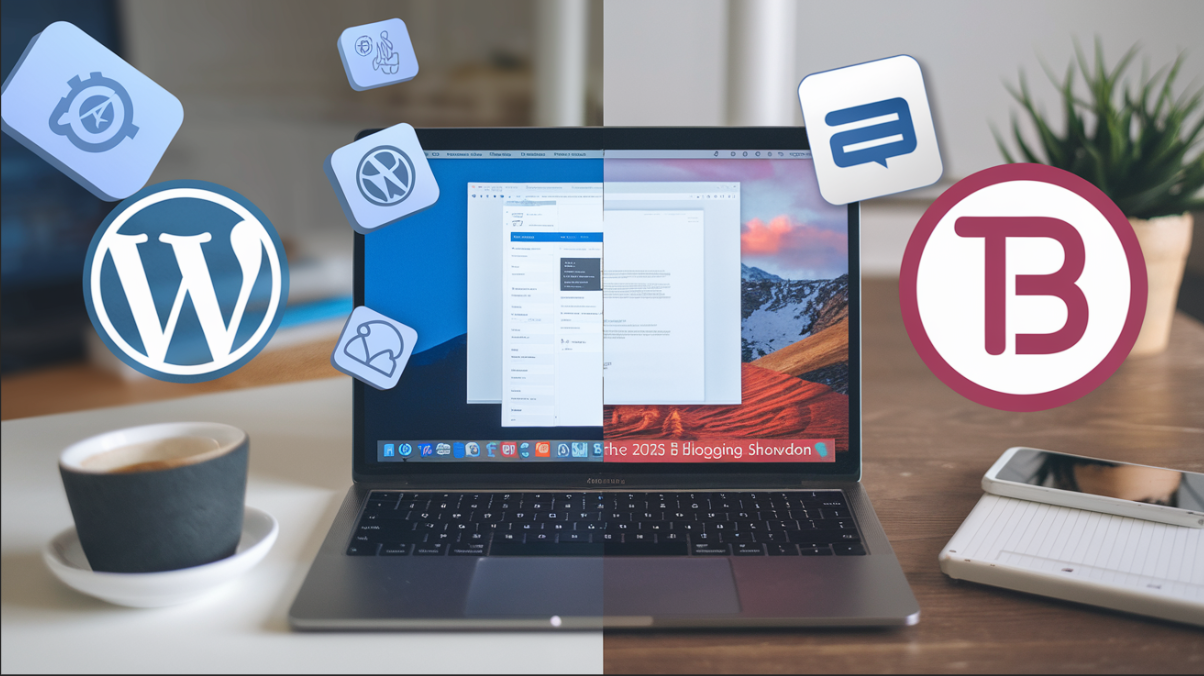
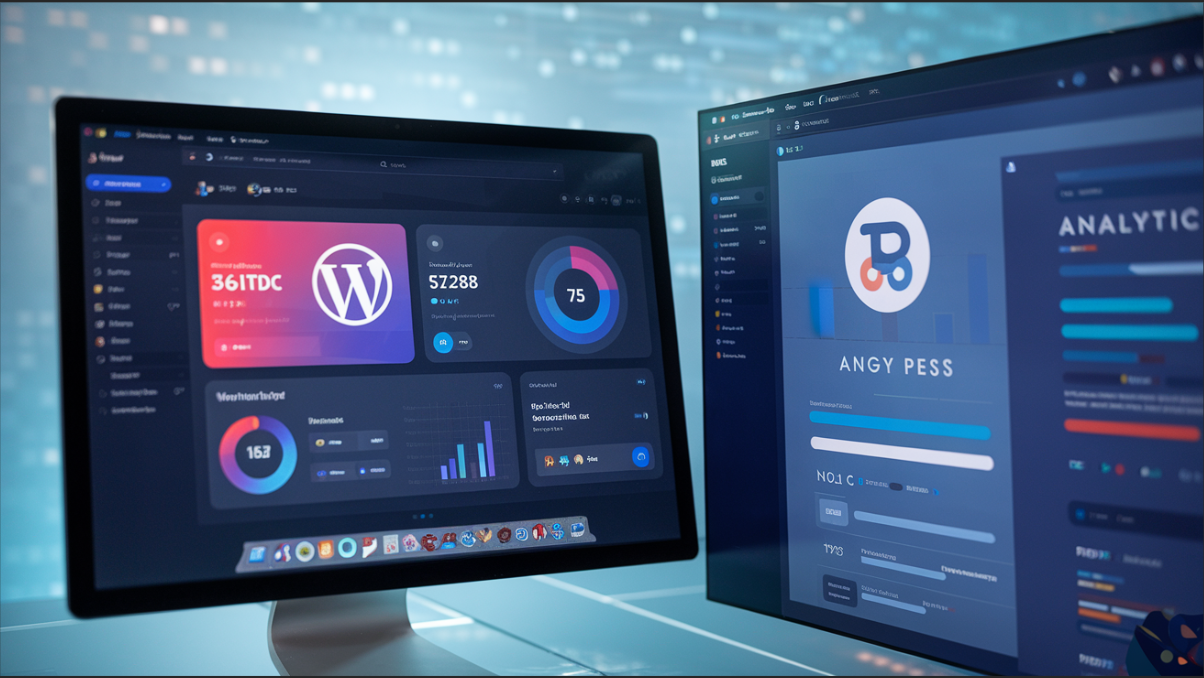

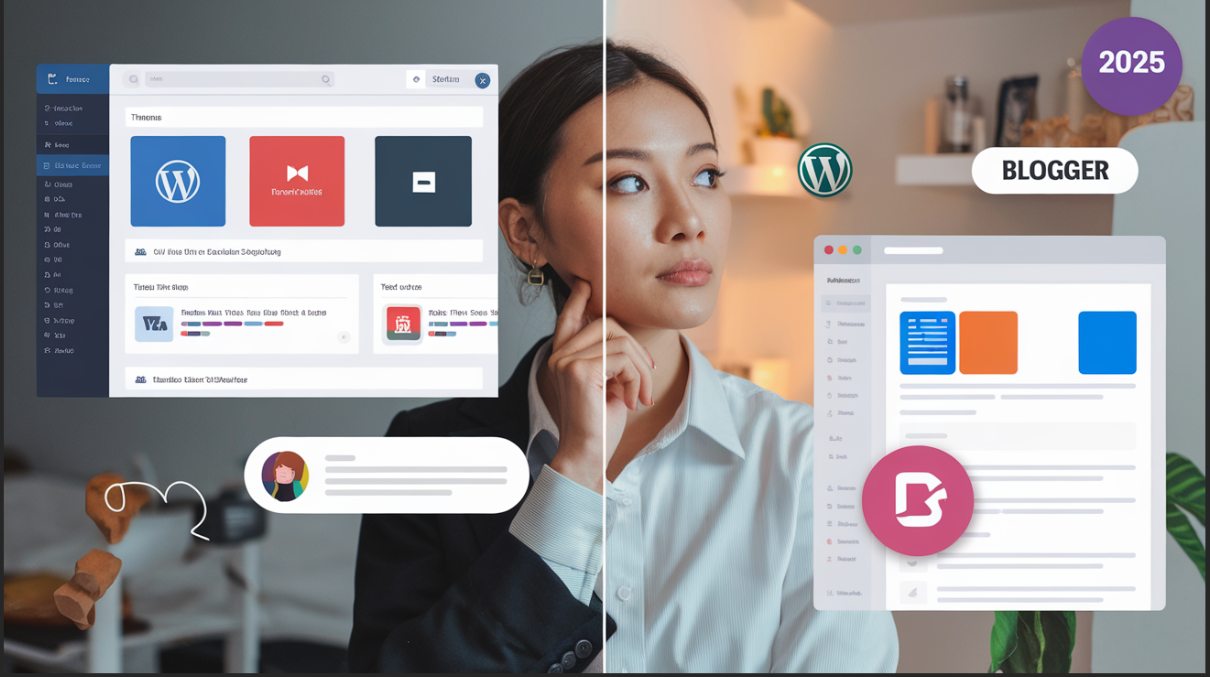
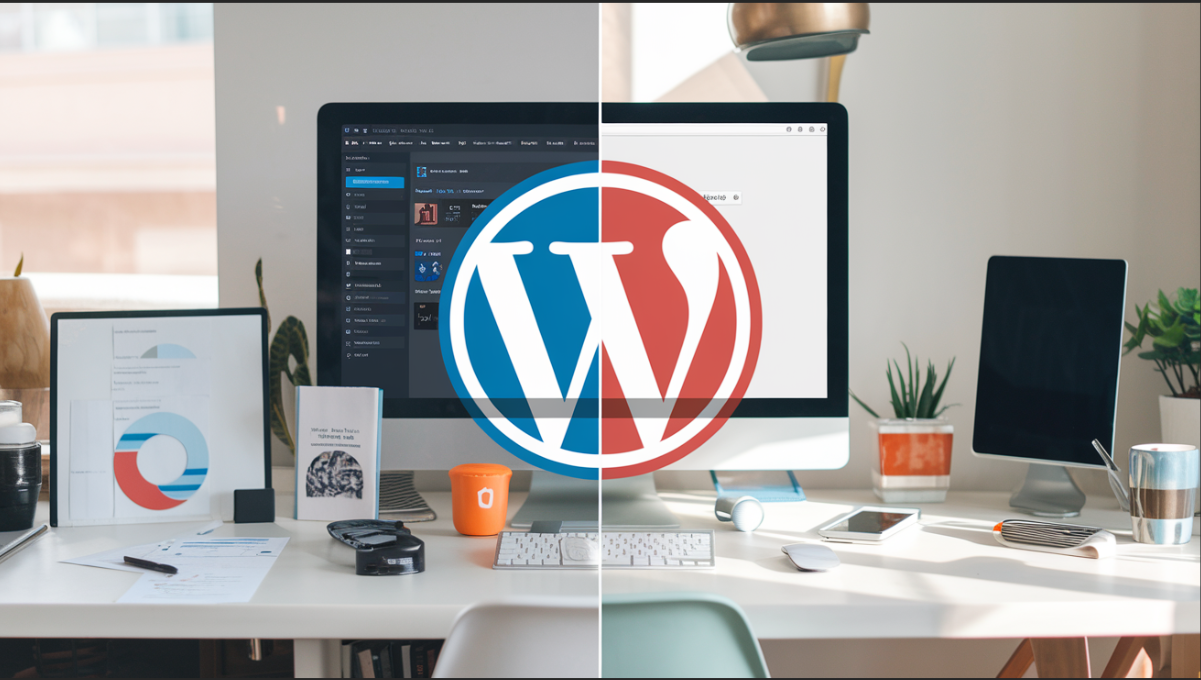
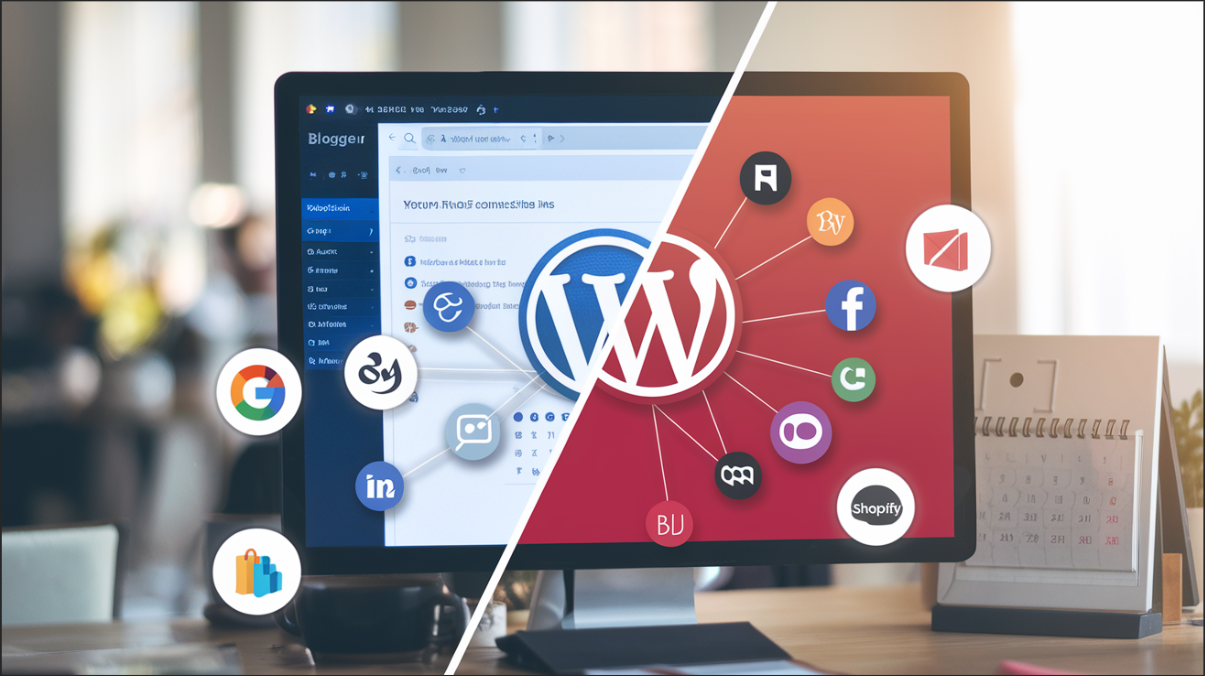




Leave a Reply